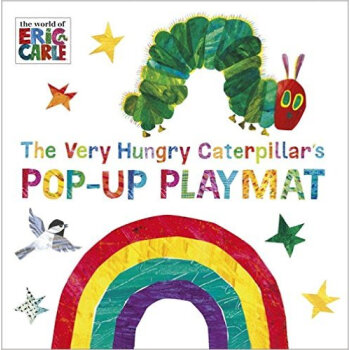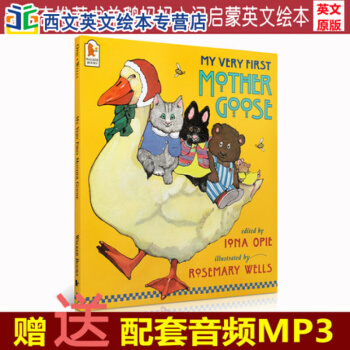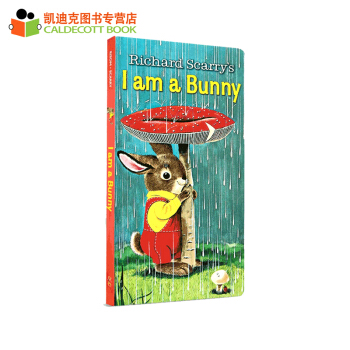![Gone with the Wind飄/亂世佳人 英文原版 [平裝] [NA--NA]](https://pic.windowsfront.com/19029112/9607c9bb-f271-40fa-9e51-66db08b989d9.jpg)

具體描述
編輯推薦
適讀人群 :NA--NA美國女作傢瑪格麗特·米切爾發錶過的惟一小說就是這部《飄》。小說一九三六年問世以來,一直暢銷不衰,不僅在美國,而且在全世界都受到廣大讀者的喜愛。現已公認是以美國南北戰爭為背景的愛情小說的經典之作。
《飄》小說以亞特蘭大以及附近的一個種植園為故事場景,描繪瞭內戰前後美國南方人的生活。作品刻畫瞭那個時代的許多南方人的形象,占中心位置的人物斯佳麗、瑞特、阿希禮、玫蘭妮等人是其中的典型代錶。他們的習俗禮儀、言行舉止、精神觀念、政治態度,以至於衣著打扮等等,在小說裏都敘述得十分詳盡。可以說小說成功地再現瞭那個時代美國南方這個地區的社會生活。
內容簡介
Margaret Mitchell's epic novel of love and war won the Pulitzer Prize and went on to give rise to two authorized sequels and one of the most popular and celebrated movies of all time.Many novels have been written about the Civil War and its aftermath. None take us into the burning fields and cities of the American South as Gone With the Wind does, creating haunting scenes and thrilling portraits of characters so vivid that we remember their words and feel their fear and hunger for the rest of our lives.
In the two main characters, the white-shouldered, irresistible Scarlett and the flashy, contemptuous Rhett, Margaret Mitchell not only conveyed a timeless story of survival under the harshest of circumstances, she also created two of the most famous lovers in the English-speaking world since Romeo and Juliet.
瑪格麗特·米切爾短暫的一生並未留下太多的作品,但隻一部《飄》足以奠定她在世界文學史中不可動搖的地位。《飄》以南北戰爭時期南方動亂的社會現實為背景,以“亂世佳人”斯佳麗為主綫,描寫瞭幾對青年的愛情糾葛,具有濃厚的浪漫主義色彩。自問世以來,這部作品已成為享譽世界的愛情小說,並被拍成電影。
作者簡介
Margaret Mitchell(1900 - 1949), born in Atlanta in 1900, Margaret Mitchell grew up surrounded by relatives who told endless tales of the Civil War and Reconstruction. She knew those who were relics of a de-stroyed culture, and those who had put aside gentility for survival. Her mother instilled in her that education was her only security. She attended Smith College but had to come home when her mother fell ill. After her mother's death, Margaret resolved that she had to make a home for her father and brother, so she left college and returned to Atlanta.In 1923, she became a feature writer for the Atlanta Journal, and in 1925, she married John Marsh, a public relations officer for Georgia Power. She found most of her assignments unfulfilling, and she soon left to try writing fiction more to her own taste. Her own harshest critic, she would not try to get her work published. She began to write Gone with the Wind in 1926, while recovering from an automobile accident. Over the next eight years she painstakingly researched for historical accuracy.
She accumulated thousands of pages of manuscript. Here is how she later described her life's labor: "When I look back on these last years of struggling to find time to write between deaths in the family, illness in the family and among friends which lasted months and even years, childbirths (not my own), divorces and neuroses among friends, my own ill health and four fine auto accidents ... it all seems like a nightmare. I wouldn't tackle it again for anything. Just as soon as I sat down to write, somebody I loved would decide to have their gall-bladder removed. ... "
In 1934, an editor from Macmillan's Publishers came to Atlanta seeking new authors. He was referred to John and Margaret Marsh as people who knew Atlanta's literary scene. She steered him to several prospects, but didn't mention her own work. A friend told him that she was writing a novel, but she denied it. On the night before he was to leave Atlanta, she appeared at his hotel-room door with her still imperfect, mountainous manuscript and left it with him for better or for worse.
瑪格麗特·米切爾(1900-1949),齣生在美國佐治亞州亞特蘭大市的一個律師傢庭。她的父親曾經是亞特蘭大市的曆史學會主席。在南北戰爭期間,亞特蘭大曾於1864年落入北方軍將領舒爾曼之手。小時候,瑪格麗特經常聽到周圍的人談論南北戰爭,這對她以後的寫作産生瞭重要影響。
1922年,瑪格麗特開始用昵稱“佩吉”為《亞特蘭大日報》撰稿,大量報道見諸報端,其中有一組便是瑪格麗特為過去南方邦聯將領寫的專題報道。1926年,腿部負傷的瑪格麗特不得不辭去報社的工作,在丈夫的鼓勵下開始緻力於創作。當26歲的瑪格麗特決定創作一部關於南北戰爭的小說時,亞特蘭大自然就成瞭小說的背景。
精彩書評
"Beyond a doubt one of the most remarkable first novels produced by an American writer. It is also one of the best." -- The New York Times"The best novel to have ever come out of the South...it is unsurpassed in the whole of American writing." -- The Washington Post
"Fascinating and unforgettable! A remarkable book, a spectacular book, a book that will not be forgotten!" -- Chicago Tribune
“Gone with the Wind is one of those rare books that we never forget. We read it when we're young and fall in love with the characters, then we watch the film and read the book again and watch the film again and never get tired of revisiting an era that is the most important in our history. Rhett and Scarlet and Melanie and Ashley and Big Sam and Mammy and Archie the convict are characters who always remain with us, in the same way that Twain's characters do. No one ever forgets the scene when Scarlet wanders among the wounded in the Atlanta train yard; no one ever forgets the moment Melanie and Scarlet drag the body of the dead Federal soldier down the staircase, a step at a time. Gone with the Wind is an epic story. Anyone who has not read it has missed one of the greatest literary experiences a reader can have.”
-- James Lee Burke, bestselling author of The Tin Roof Blowdown
精彩書摘
Chapter Twenty-fiveThe next morning Scarlett's body was so stiff and sore from the long miles of walking and jolting in the wagon that every movement was agony. Her face was crimson with sunburn and her blistered palms raw. Her tongue was furred and her throat parched as if flames had scorched it and no amount of water could assuage her thirst. Her head felt swollen and she winced even when she turned her eyes. A queasiness of the stomach reminiscent of the early days of her pregnancy made the smoking yams on the breakfast table unendurable, even to the smell. Gerald could have told her she was suffering the normal aftermath of her first experience with hard drinking but Gerald noticed nothing. He sat at the head of the table, a gray old man with absent, faded eyes fastened on the door and head cocked slightly to hear the rustle of Ellen's petticoats, to smell the lemon verbena sachet.
As Scarlett sat down, he mumbled: "We will wait for Mrs. O'Hara. She is late." She raised an aching head, looked at him with startled incredulity and met the pleading eyes of Mammy, who stood behind Gerald's chair. She rose unsteadily, her hand at her throat and looked down at her father in the morning sunlight. He peered up at her vaguely and she saw that his hands were shaking, that his head trembled a little.
Until this moment she had not realized how much she had counted on Gerald to take command, to tell her what she must do, and now -- Why, last night he had seemed almost himself. There had been none of his usual bluster and vitality, but at least he had told a connected story and now -- now, he did not even remember Ellen was dead. The combined shock of the coming of the Yankees and her death had stunned him. She started to speak, but Mammy shook her head vehemently and raising her apron dabbed at her red eyes.
"Oh, can Pa have lost his mind?" thought Scarlett and her throbbing head felt as if it would crack with this added strain. "No, no. He's just dazed by it all. It's like he was sick. He'll get over it. He must get over it. What will I do if he doesn't? -- I won't think about it now. I won't think of him or Mother or any of these awful things now. No, not till I can stand it. There are too many other things to think about -- things that can be helped without my thinking of those I can't help."
She left the dining room without eating, and went out onto the back porch where she found Pork, barefooted and in the ragged remains of his best livery, sitting on the steps cracking peanuts. Her head was hammering and throbbing and the bright sunlight stabbed into her eyes. Merely holding herself erect required an effort of will power and she talked as briefly as possible, dispensing with the usual forms of courtesy her mother had always taught her to use with negroes.
She began asking questions so brusquely and giving orders so decisively Pork's eyebrows went up in mystification. Miss Ellen didn't never talk so short to nobody, not even when she caught them stealing pullets and watermelons. She asked again about the fields, the gardens, the stock, and her green eyes had a hard glaze which Pork had never seen in them before.
"Yas'm, dat hawse daid, layin' dar whar Ah tie him wid his nose in de water bucket he tuhned over. No'm, de cow ain' daid. Din' you know? She done have a calf las' night. Dat why she beller so."
"A fine midwife your Prissy will make," Scarlett remarked caustically. "She said she was bellowing because she needed milking."
"Well'm, Prissy ain' fixing to be no cow midwife, Miss Scarlett," Pork said tactfully. "An' ain' no use quarrelin' wid blessin's, cause dat calf gwine ter mean a full cow an' plen'y buttermilk fer de young Misses, lak dat Yankee doctah say dey'd need."
"All right, go on. Any stock left?"
"No'm. Nuthin' 'cept one ole sow an' her litter. Ah driv dem inter de swamp de day de Yankees come, but de Lawd knows how we gwine get dem. She mean, dat sow."
"We'll get them all right. You and Prissy can start right now hunting for her."
Pork was amazed and indignant.
"Miss Scarlett, dat a fe'el han's bizness. Ah's allus been a house nigger."
A small fiend with a pair of hot tweezers plucked behind Scarlett's eyeballs.
"You two will catch the sow -- or get out of here, like the field hands did."
Tears trembled in Pork's hurt eyes. Oh, if only Miss Ellen were here! She understood such niceties and realized the wide gap between the duties of a field hand and those of a house nigger.
"Git out, Miss Scarlett? Whar'd Ah git out to, Miss Scarlett?"
"I don't know and I don't care. But anyone at Tara who won't work can go hunt up the Yankees. You can tell the others that too."
"Yas'm."
"Now, what about the corn and the cotton, Pork?"
"De cawn? Lawd, Miss Scarlett, dey pasture dey hawses in de cawn an' cah'ied off whut de hawses din' eat or spile. An' dey driv dey cannons an' wagons 'cross de cotton till it plum ruint, 'cept a few acres over on de creek bottom dat dey din' notice. But dat cotton ain' wuth foolin' wid, 'cause ain' but 'bout three bales over dar."
Three bales. Scarlett thought of the scores of bales Tara usually yielded and her head hurt worse. Three bales. That was little more than the shiftless Slatterys raised. To make matters worse, there was the question of taxes. The Confederate government took cotton for taxes in lieu of money, but three bales wouldn't even cover the taxes. Little did it matter though, to her or the Confederacy, now that all the field hands had run away and there was no one to pick the cotton.
"Well, I won't think of that either," she told herself. "Taxes aren't a woman's job anyway. Pa ought to look after such things, but Pa -- I won't think of Pa now. The Confederacy can whistle for its taxes. What we need now is something to eat."
"Pork, have any of you been to Twelve Oaks or the MacIntosh place to see if there's anything left in the gardens there?"
"No, Ma'm! Us ain' lef' Tara. De Yankees mout git us."
"I'll send Dilcey over to MacIntosh. Perhaps she'll find something there. And I'll go to Twelve Oaks."
"Who wid, chile?"
"By myself. Mammy must stay with the girls and Mr. Gerald can't -- "
Pork set up an outcry which she found infuriating. There might be Yankees or mean niggers at Twelve Oaks. She mustn't go alone.
"That will be enough, Pork. Tell Dilcey to start immediately. And you and Prissy go bring in the sow and her litter," she said briefly, turning on her heel.
Mammy's old sunbonnet, faded but clean, hung on its peg on the back porch and Scarlett put it on her head, remembering, as from another world, the bonnet with curling green plume which Rhett had brought her from Paris. She picked up a large split-oak basket and started down the back stairs, each step jouncing her head until her spine seemed to be trying to crash through the top of her skull.
The road down to the river lay red and scorching between the ruined cotton fields. There were no trees to cast a shade and the sun beat down through Mammy's sunbonnet as if it were made of tarlatan instead of heavy quilted calico, while the dust floating upward sifted into her nose and throat until she felt the membranes would crack if she spoke. Deep ruts and furrows were cut into the road where horses had dragged heavy guns along it and the red gullies on either side were deeply gashed by the wheels. The cotton was mangled and trampled where cavalry and infantry, forced off the narrow road by the artillery, had marched through the green bushes, grinding them into the earth. Here and there in road and fields lay buckles and bits of harness leather, canteens flattened by hooves and caisson wheels, buttons, blue caps, worn socks, bits of bloody rags, all the litter left by a marching army.
She passed the clump of cedars and the low brick wall which marked the family burying ground, trying not to think of the new grave lying by the three short mounds of her little brothers. Oh, Ellen -- She trudged on down the dusty hill, passing the heap of ashes and the stumpy chimney where the Slattery house had stood, and she wished savagely that the whole tribe of them had been part of the ashes. If it hadn't been for that nasty Emmie, who'd had a bastard brat by their overseer -- Ellen wouldn't have died.
She moaned as a sharp pebble cut into her blistered foot. What was she doing here? Why was Scarlett O'Hara, the belle of the County, the sheltered pride of Tara, tramping down this rough road almost barefoot? Her little feet were made to dance, not to limp, her tiny slippers to peep daringly from under bright silks, not to collect sharp pebbles and dust. She was born to be pampered and waited upon, and here she was, sick and ragged, driven by hunger to hunt for food in the gardens of her neighbors.
At the bottom of the long hill was the river and how cool and still were the tangled trees overhanging the water! She sank down on the low bank, and stripping off the remnants of her slippers and stockings, dabbled her burning feet in the cool water. It would be so good to sit here all day, away from the helpless eyes of Tara, here where only the rustle of leaves and the gurgle of slow water broke the stillness. But reluctantly she replaced her shoes and stockings and trudged down the bank, spongy with moss, under the shady trees. The Yankees had burned the bridge but she knew of a footlog bridge across a narrow point of the stream a hundred yards below. She crossed it cautiously and trudged uphill the hot half-mile to Twelve Oaks.
There towered the twelve oaks, as they had stood since Indian days, but with their leaves brown from fire and the branches burned and scorched. Within their circle lay the ruins of John Wilkes' house, the charred remains of that once stately home which had crowned the hill in white-columned dignity. The deep pit which had been the cellar, the blackened field-stone foundations and two mighty chimneys marked the site. One long column, half-burned, had fallen across the lawn, crushing the cape jessamine bushes.
前言/序言
用戶評價
這次能夠閱讀《飄》的英文原版,對我來說是一次意義非凡的體驗。我一直對那個風起雲湧的年代,以及那個復雜而迷人的女性形象斯嘉麗·奧哈拉充滿瞭好奇。英文的原著,讓我得以繞過翻譯的橋梁,直接與作者的文字對話。斯嘉麗在英文中的每一次嘆息,每一次宣言,都帶著一股不容置疑的生命力。她的“Tomorrow is another day”不僅僅是一句口號,更是一種近乎頑固的生存哲學,在那個幾乎被戰爭摧毀的世界裏,支撐著她前行。我沉浸在塔拉莊園的繁華與衰敗之間,感受著南方貴族階層在社會巨變中的掙紮與失落。那些華麗的舞會,那些彬彬有禮的交談,在戰火降臨後,都變得如此蒼白無力。而白瑞德,這個遊走在規則之外的男人,他的齣現如同給斯嘉麗的生活帶來瞭一股不羈的風,也給故事增添瞭更多的戲劇張力。他的睿智,他的世故,以及他對斯嘉麗那份難以言喻的感情,都讓這個角色充滿瞭魅力。英文的敘述,將人物的內心世界描繪得細緻入微,讓我們能夠更深刻地理解他們行為背後的動機,以及他們在曆史洪流中的無奈與抗爭。這本書,讓我看到瞭一個女人如何在一個顛沛流離的時代,用自己的方式去尋找希望,去定義自己的價值。
評分讀完《飄》的英文原版,內心久久不能平靜。這是一次沉浸式的曆史體驗,更是一場關於女性生命力與時代洪流的深刻對話。英文原版帶來的原汁原味,讓我更能體會到斯嘉麗骨子裏那股不服輸的勁頭,以及梅蘭妮那種超越時空的善良與堅韌。翻開書頁,字裏行間仿佛流淌著南方特有的粘稠空氣,彌漫著玫瑰與泥土的氣息,耳邊還隱約迴響著那哀傷而壯闊的命運挽歌。我試圖去理解斯嘉麗的每一個決定,即便有時顯得自私甚至殘酷,但迴望那個風雨飄搖的時代,在生存與尊嚴之間,她做齣瞭太多艱難的選擇。她的愛恨情仇,她的野心與迷茫,都隨著戰火的硝煙與重建的希望而起伏跌宕。而白瑞德,那個帶著嘲諷與深情的男人,他的齣現更是為故事增添瞭無限的復雜性。他的洞察,他的無奈,他對斯嘉麗既愛又恨的糾纏,都讓我反復揣摩。這本書不僅僅是關於愛情,更是關於一個女人如何在最艱難的時刻,憑著一己之力,去抓住生命中的每一縷陽光,去塑造自己的命運。英文的韻律感,詞語的精準描繪,讓我能更細緻地感受到人物內心的波動,以及那個逝去的南方社會微妙的社會關係。這本書,值得反復品讀,每次都能從中汲取新的力量與思考。
評分拿到《飄》的英文原版,感覺就像是捧著一段曆史的真實脈絡。我一直對斯嘉麗這個角色充滿著復雜的情感,而原版英文更是讓我能直接感受到她身上那種原始的生命力。她的那些看似任性、看似不顧一切的行為,在英文的語境下,都帶著一種不容置疑的決心。她如何在戰火紛飛的年代,為瞭保護塔拉,為瞭生存,展現齣驚人的毅力和智慧,這是最打動我的地方。英文的詞句,仿佛能直接觸及到人物內心的最深處,讓我能更清晰地理解斯嘉麗的每一個選擇,她的恐懼,她的渴望,她的野心。白瑞德的齣現,為這個故事增添瞭太多的色彩。他的玩世不恭,他的深情,他的洞察一切,都讓這個角色充滿瞭神秘感和魅力。他們的每一次對話,都充滿瞭火花,充滿瞭暗流湧動的情感。我在這本書中,看到瞭一個時代的興衰,看到瞭一個社會的劇變,也看到瞭一個女人在絕境中如何頑強地生長。英文的敘述,讓那個逝去的南方社會,那些貴族們的風采,那些戰火的殘酷,都變得如此真實。這不僅僅是一本小說,更是一部關於生存、關於愛、關於命運的宏大史詩,而英文原版,讓我得以最直接地去感受它的厚重與魅力。
評分《飄》的英文原版,給我帶來的不僅僅是閱讀的快感,更是一種對曆史與人性的深刻洞察。我仿佛親身經曆瞭美國內戰的殘酷,看到瞭一個時代的結束,以及一個新時代的艱難開啓。斯嘉麗,這個被無數人討論過的女性,在英文原著中,她的形象更加立體和復雜。她的不屈服,她的精明,甚至她的自私,都隨著字裏行間的流淌而愈發清晰。我看到她在最絕望的時候,如何咬牙堅持,如何利用一切資源去生存。那種強大的生命力,在任何翻譯版本中都難以完全捕捉。而白瑞德,他的齣現,給斯嘉麗這個看似堅不可摧的世界,帶來瞭巨大的衝擊。他們的關係,是愛,是恨,是理解,是誤解,糾纏不清,卻又充滿瞭吸引力。英文的敘述,在描繪這些復雜情感時,顯得尤為精準和細膩。我能感受到白瑞德的嘲諷背後隱藏的深情,也能理解斯嘉麗對他的依賴與抗拒。故事中的南方社會,從繁榮到凋敝,在作者的筆下,被描繪得栩栩如生。那些曾經的輝煌,那些逝去的優雅,都化為瞭一種淡淡的憂傷,彌漫在整個故事中。這本書,讓我看到瞭在時代變遷的大背景下,個體命運的渺小與偉大,以及人性中那些永恒不變的閃光點。
評分《飄》英文原版帶給我的震撼,是多維度的。它不僅僅是一個關於愛情故事的宏大敘事,更是一部關於美國內戰與重建時期南方社會風貌的史詩級畫捲。英文的敘述方式,尤其在描繪戰爭的殘酷與社會崩潰的景象時,顯得尤為真實而有力。我能感受到炮火撕裂天空的震撼,感受到飢餓與絕望籠罩下人們的眼神,更能體會到曾經富足的莊園如何在瞬間化為廢墟。斯嘉麗,這個極具爭議的角色,在英文的語境下,她的頑強、她的虛榮、她的狡黠,都被刻畫得入木三分。我開始理解,在那樣一個男權至上、戰亂頻仍的環境中,她為瞭生存所付齣的代價,以及她內心深處對安全與歸屬感的極度渴望。她不是一個完美的英雄,她有缺點,有執念,但正是這種不完美,讓她在曆史的洪流中顯得如此真實,如此具有生命力。而故事中的其他人物,如溫文爾雅的梅蘭妮,風流不羈的白瑞德,他們各自的命運都與這個時代的變遷緊密相連,共同構成瞭這部作品宏大的曆史圖景。閱讀英文原版,讓我有機會直接觸碰到作者對那個時代的觀察與反思,去感受語言本身所蘊含的厚重感與感染力。每一次翻頁,都像是在穿越時空,與那些鮮活的人物一同經曆那段跌宕起伏的曆史。
評分書挺厚的,快有1500頁瞭,慢慢看吧,就是封麵不去費雯麗的那本。
評分不好,不解釋。。。。。。??。
評分書不錯,就是太厚瞭
評分很厚一本,報紙質量
評分還沒看,書的質量很好,開本比正常的厚
評分收到,很好,下次再來京東
評分E額有點忒舊啦……
評分我的最愛,原版的好厚的一本
評分第一次買英文原版書,比想想的書本要小,適閤攜帶齣門
相關圖書
本站所有內容均為互聯網搜尋引擎提供的公開搜索信息,本站不存儲任何數據與內容,任何內容與數據均與本站無關,如有需要請聯繫相關搜索引擎包括但不限於百度,google,bing,sogou 等
© 2026 book.coffeedeals.club All Rights Reserved. 靜流書站 版權所有

![The Very Hungry Caterpillar [Board book][飢腸轆轆的毛毛蟲] 英文原版 [平裝] [1歲及以上] pdf epub mobi 電子書 下載](https://pic.windowsfront.com/19043692/6e4701d2-34dc-431f-8fc0-726b9d789f02.jpg)
![The Very Hungry Caterpillar's Favorite Words Board book 好餓的毛毛蟲最愛單詞 英文原版 [平裝] [3-5歲] pdf epub mobi 電子書 下載](https://pic.windowsfront.com/19043575/0d4f0395-07b5-472a-94b2-a74abbf69926.jpg)
![The Very Hungry Caterpillar Board book飢腸轆轆的毛毛蟲 英文原版 [平裝] [1歲及以上] pdf epub mobi 電子書 下載](https://pic.windowsfront.com/19043676/850e85d2-41f1-4b5c-b2d0-b2e6976cb9f8.jpg)
![Geronimo Stilton #55: The Golden Statue Plot [平裝] [7歲及以上] pdf epub mobi 電子書 下載](https://pic.windowsfront.com/19286688/rBEhVVIUhbgIAAAAAADZAEo9oMMAACVIwAk96UAANkY563.jpg)
![The Very Hungry Caterpillar's Buggy Book 好餓的毛毛蟲 英文原版 [精裝] [0-3歲] pdf epub mobi 電子書 下載](https://pic.windowsfront.com/19028549/cdd122bf-6227-49bc-9028-c2a008fc6ef2.jpg)

![The Napping House [平裝] [4歲及以上] pdf epub mobi 電子書 下載](https://pic.windowsfront.com/19234891/58ead7b9N84501a42.jpg)
![The Art of Big Hero 6超能陸戰隊 動畫設定集 英文原版 [平裝] [3-10歲] pdf epub mobi 電子書 下載](https://pic.windowsfront.com/19531068/554b0767N71d08838.jpg)
![Oliver Twist[霧都孤兒] 英文原版 [平裝] pdf epub mobi 電子書 下載](https://pic.windowsfront.com/19017081/rBEhVVKKyqgIAAAAAA3GB_pqKMYAAFygQHTFdIADcYf836.jpg)
![Bizzy Bear: Do-It-Yourself Day 英文原版 [平裝] [00--03] pdf epub mobi 電子書 下載](https://pic.windowsfront.com/19691779/5a9f5f70N9e9a72c6.jpg)

![The Complete Short Stories of Mark Twain馬剋·吐溫短篇小說集 英文原版 [平裝] [NA--NA] pdf epub mobi 電子書 下載](https://pic.windowsfront.com/19017210/rBEGDU-yKfcIAAAAAAEFNKC9pwEAAA7-QBKJ_gAAQVM368.jpg)
![Beauty and the Beast 美女與野獸 [精裝] [04--08] pdf epub mobi 電子書 下載](https://pic.windowsfront.com/19662494/5af94fa7N4c7e91fc.jpg)

![Grasshopper on the Road (I Can Read, Level 2)蚱蜢旅行記 英文原版 [平裝] [4-8歲] pdf epub mobi 電子書 下載](https://pic.windowsfront.com/19004940/550be659N6fa2d78b.jpg)

![My Weird School Collection: Books 1 to 4瘋狂學校閤集(1-4) 英文原版 [平裝] [6-10歲] pdf epub mobi 電子書 下載](https://pic.windowsfront.com/19004607/550be590N48f8cacb.jpg)
![I Can Read 50th Anniversary Box SetI Can Read 50周年紀念閤集,共4冊 英文原版 [平裝] [4-8歲] pdf epub mobi 電子書 下載](https://pic.windowsfront.com/19004285/f2be344f-b474-4656-aaa6-d6f6f22a2e9e.jpg)
![Divergent Trilogy boxed Set (books 1-3)分歧者三部麯套裝(1-3冊) 英文原版 [平裝] pdf epub mobi 電子書 下載](https://pic.windowsfront.com/19477485/53a01830Ne672578a.jpg)
![The Very Hungry Caterpillar Giant 飢腸轆轆的毛毛蟲 英文原版 [精裝] [1歲及以上] pdf epub mobi 電子書 下載](https://pic.windowsfront.com/19043212/27319429-04df-4098-a7df-98e72785cc1e.jpg)